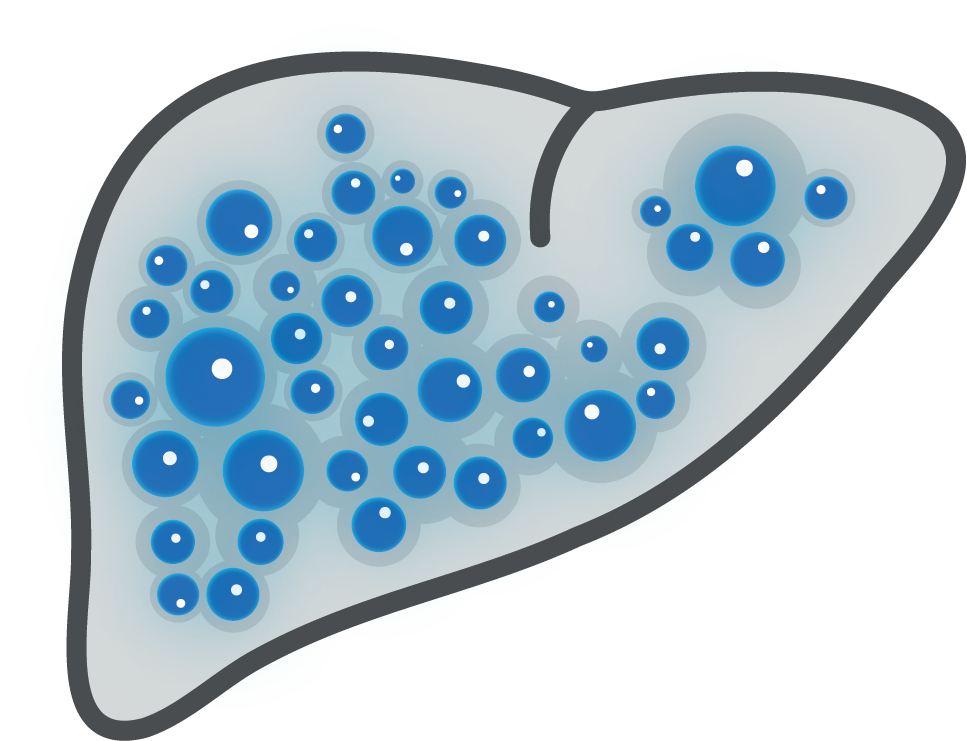Cirrhosis of the Liver
Conditions

Cirrhosis is a late-stage liver disease in which healthy liver tissue is replaced by scar tissue (fibrosis). As scar tissue builds, it prevents the liver from working correctly, limiting blood flow, disrupting nutrient processing, and reducing the organ’s ability to filter toxins. Cirrhosis develops gradually, often over years, and can lead to serious complications if left untreated.
Alcohol
Long-term heavy alcohol use is one of the leading causes of cirrhosis. Excessive drinking damages liver cells, leading to scarring and loss of function over time.
Hepatitis
Chronic viral hepatitis, especially hepatitis B and C, can cause ongoing inflammation and scarring of the liver, significantly increasing the risk of cirrhosis.
Fatty liver disease
Metabolically associated steatotic liver disease (MASLD) and its more severe form, nonalcoholic steatohepatitis (NASH), are increasingly common causes of cirrhosis. Both are linked to obesity, diabetes, and metabolic syndrome.
Genetic causes
Inherited conditions such as hemochromatosis (iron overload) or Wilson’s disease (copper accumulation) can damage the liver and contribute to cirrhosis if not managed early.
Early cirrhosis may not cause noticeable symptoms. As the disease progresses, signs may include:
- Fatigue or weakness
- Loss of appetite or weight loss
- Easy bruising or bleeding
- Yellowing of the skin or eyes (jaundice)
- Abdominal swelling or pain
- Spider veins
- Red palms
- Swelling in the legs or ankles
- Confusion or difficulty concentrating (a complication called hepatic encephalopathy)
If you experience these symptoms, it’s important to consult a gastroenterologist promptly.
Lifestyle changes
Patients are often advised to:
- Completely avoid alcohol
- Eat a balanced diet low in salt and rich in nutrients
- Maintain a healthy weight
- Exercise regularly
Medications
Your doctor may prescribe medications to treat underlying causes (like antivirals for hepatitis) or manage complications such as portal hypertension, infections, or hepatic encephalopathy.
Screening for liver cancer- cirrhosis of any type increases the risk of liver cancer, so your doctor may do routine blood work and imaging to screen for hepatic cancer
Procedures
In advanced cases, treatments may include procedures to manage fluid buildup, endoscopic therapies for varices, or referral for liver transplantation for end-stage disease.
At NYGA, our expert team provides comprehensive care for patients with cirrhosis. From advanced diagnostics to personalized treatment plans, we help patients manage their condition and protect their long-term liver health. If you’ve been diagnosed with cirrhosis or are at risk, schedule a consultation today with one of our gastroenterologists to get expert care tailored to your needs.
